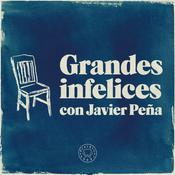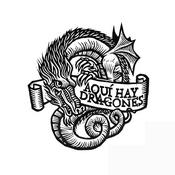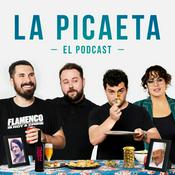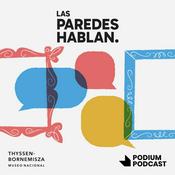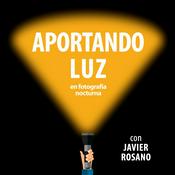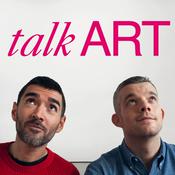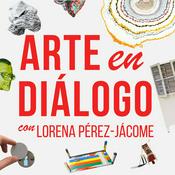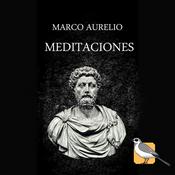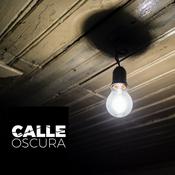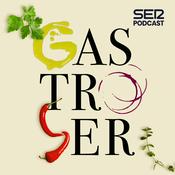332 episodios
- Dan Pashman is one of those increasingly rare people who always wanted to be in radio. His career began at the turn of the millennium as a producer and reporter for NPR, Air America, and SiriusXM. But after six layoffs in under a decade—and an industry in steady contraction—Pashman found himself at a crossroads just as podcasting was beginning to emerge.
In 2010, he created The Sporkful, a show he describes as being "for eaters, not foodies." With a young family in front of him and a decade of false starts behind him, Pashman saw the podcast as his last real shot at the career he'd imagined. Long obsessed with food, he finally had a platform to explore something he cared about deeply.
Built on curiosity, humor, and an almost comical level of rigor, The Sporkful began with hyper-specific food debates—ice cubes, grilled cheese, cereal milk—and evolved into a broader exploration of culture, identity, business, and human connection. That evolution reached a turning point when Pashman embarked on a multi-year experiment inventing a new pasta shape, cascatelli, which became an award-winning narrative series and a real product on grocery store shelves.
In this conversation, Pashman talks about creative obsession, building a sustainable podcast business, audio versus video, integrating ads without losing trust, and what he sees as a key to his success: "Never underestimate the power of desperation." It's a candid look at how a modern creative career gets built—one forkful at a time.
www.third-story.com
www.leosidran.substack.com
www.wbgo.org/podcast/the-third-story - Kurt Elling returns for a wide-ranging conversation about vocation, gratitude, and what it means to be in service of the music.
Elling first appeared on The Third Story nearly ten years ago, already one of the most celebrated singers of his generation and still deeply focused on what he calls "the work I haven't done yet." Since then, he has moved from New York back to his native Chicago, launched major projects like SuperBlue with Charlie Hunter and members of Butcher Brown, recorded intimate small-group albums in the Wildflowers series of recordings, started his Big Shoulders record label, and continued his "poetic practice" of adding new lyrics to instrumental works by artists such as Wayne Shorter and Jaco Pastorius.
The immediate occasion for this reunion, however, is something entirely new: Elling is currently appearing on Broadway in Hadestown, playing the role of Hermes.
Recorded in an apartment on the Upper West Side during his Broadway run, the conversation moves fluidly between jazz clubs and civic life. Elling speaks candidly about depression, aging, discipline, politics, and the moral responsibility of artists in unsettled times. Throughout, he returns to a central idea: the artist's job is not ego or display, but manifestation — to channel the song so something healing can happen in the room.
www.third-story.com
www.leosidran.substack.com
www.wbgo.org/podcast/the-third-story - The Café Central, a jazz club located just off Madrid's Puerta del Sol — Spain's "Kilometer Zero" — has been going out of business for more than forty years.
And now, it finally might.
Opened in the early 1980s during Spain's cultural reopening after Franco's dictatorship, Café Central became a rare kind of space: part jazz club, part café, part public living room. Bands were booked for full weeks — seven nights at a time — a model that favored musical development over turnover, and community over efficiency.
It was never a good business. But it was a great room.
For nearly thirty years, my father, jazz musician Ben Sidran, and I returned every November to play there. Over time, the ritual turned into a tradition, and the tradition turned into a legacy — not just for us, but for audiences who marked their calendars around those weeks.
Café Central also reflected the city around it. For years, Madrid felt quietly provincial — less touristy, more inward-facing than other European capitals. But that changed. Tourism surged. Rents rose. The economics shifted.
In 2018, new owners took over the club. The booking model changed. Week-long residencies largely disappeared, replaced by shorter runs and double seatings. The future arrived, whether anyone wanted it or not.
And yet, something endured.
Café Central wasn't just a place where music happened. It was where relationships formed — between musicians and audiences, between locals and visitors, between generations. It taught us that culture survives not because it's profitable, but because people show up, night after night, year after year.
As Café Central prepares to close — or possibly move — it raises a familiar question: when a place disappears, what actually goes with it?
The answer, I think, is never just the room.
It's the memory of how it felt to be there — and the responsibility to carry that feeling forward.
Featuring conversations with my father, Ben Sidran and my mother, Judy Sidran, this episode explores music, memory, and the fragile ecosystems that keep culture alive.
www.third-story.com
www.leosidran.substack.com
www.wbgo.org/podcast/the-third-story - Guitarist, bassist, composer Phil Upchurch died on November 23, and with his passing the music world lost one of its true "musician's musicians." Upchurch played on more than a thousand recordings — from Michael Jackson, Donny Hathaway, Chaka Khan, Curtis Mayfield, and George Benson to Jimmy Reed, the Staples Singers, and countless jazz, blues, and soul sessions. He belonged to the generation that didn't just shape popular music; they invented it.
For my dad, Ben Sidran, Phil was also a friend for over 50 years. They recorded and toured together, shared studios, homes, families, and a deep creative kinship. Some of my earliest gigs as a drummer were with Phil, and those moments helped define my own musical path.
When we heard that Phil had passed, I called my dad so we could remember him together — the sessions, the stories, the laughter, the generosity, and the unmistakable sound that made him both an insider's secret and a foundational figure in American music.
This episode is a tribute — a conversation about a life lived fully in music, about reputation and legacy, and about the musicians who shaped the landscape from behind the scenes.
Visit Third-Story.com for the full archive, and sign up for writing and updates at leosidran.substack.com.
The Third Story is made in partnership with WBGO Studios.
https://www.wbgo.org/podcast/the-third-story - Madison Cunningham's new album Ace marks a striking and vulnerable chapter in the young songwriter's evolution. Not yet 30, Cunningham has already lived through a period of profound personal transformation. She married young, divorced young, and found herself rebuilding her identity in the wake of major change. Instead of retreating, she turned the experience into a meditation on the difference between happiness and contentment.
Raised in a large religious family in Orange County, Cunningham began performing in her father's church band at twelve and was experimenting with alternate tunings before she fully understood them. Her breakthrough albums Who Are You Now (Grammy-nominated) and Revealer (Grammy winner for Best Folk Album) established her as one of the most distinctive voices of her generation.
Here she reflects on her early musical formation, artistic growth, and the deeply personal experiences that shaped Ace—a record about honesty, resilience, and learning to stay present.
www.third-story.com
www.leosidran.substack.com
www.wbgo.org/podcast/the-third-story
This episode is sponsored by Musication, offering in-home music lessons in Brooklyn and Manhattan for kids ages three and up. Visit https://musication.nyc and mention the podcast to receive two free trial lessons.
Más podcasts de Arte
Podcasts a la moda de Arte
Acerca de The Third Story with Leo Sidran
THE THIRD STORY features long-form interviews with creative people of all types, hosted by musician Leo Sidran. Their stories of discovery, loss, ambition, identity, risk, and reward are deeply moving and compelling for all of us as we embark on our own creative journeys.
Sitio web del podcastEscucha The Third Story with Leo Sidran, Grandes Infelices y muchos más podcasts de todo el mundo con la aplicación de radio.es
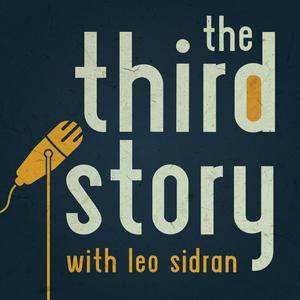
Descarga la app gratuita: radio.es
- Añadir radios y podcasts a favoritos
- Transmisión por Wi-Fi y Bluetooth
- Carplay & Android Auto compatible
- Muchas otras funciones de la app
Descarga la app gratuita: radio.es
- Añadir radios y podcasts a favoritos
- Transmisión por Wi-Fi y Bluetooth
- Carplay & Android Auto compatible
- Muchas otras funciones de la app


The Third Story with Leo Sidran
Escanea el código,
Descarga la app,
Escucha.
Descarga la app,
Escucha.

